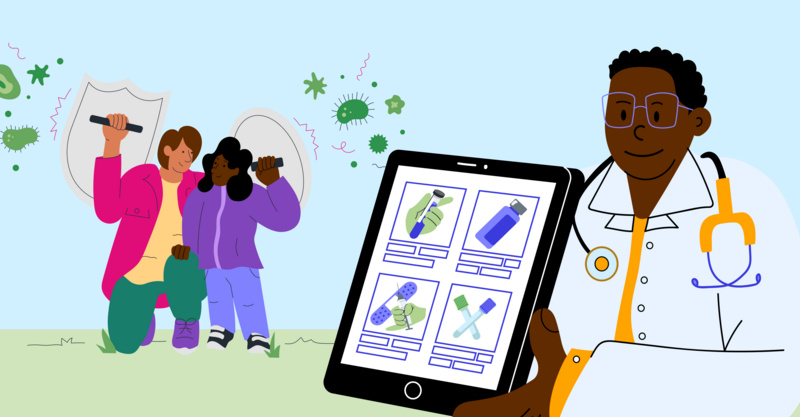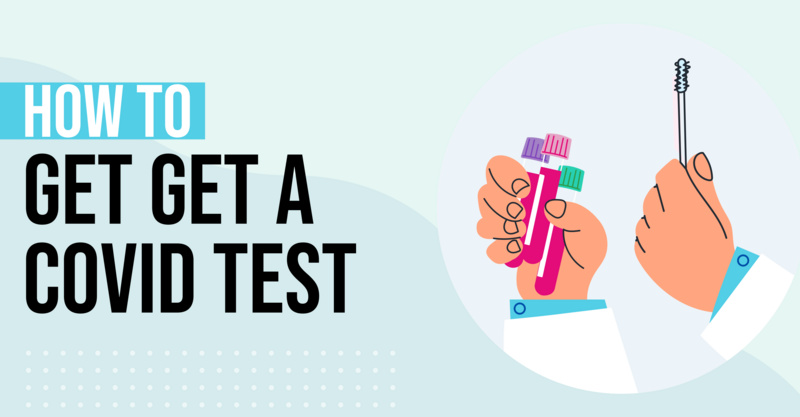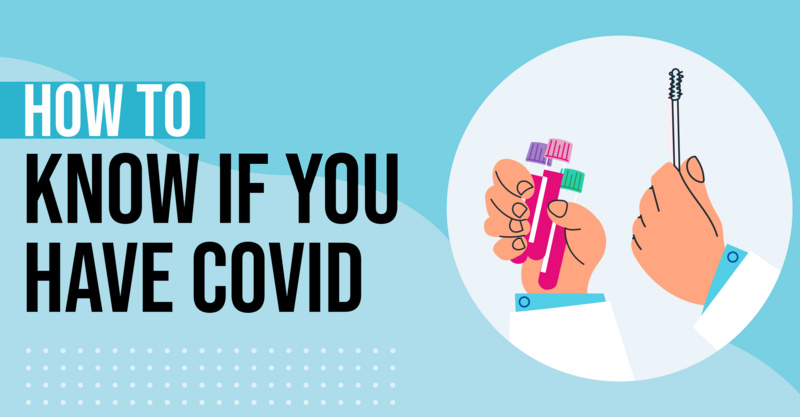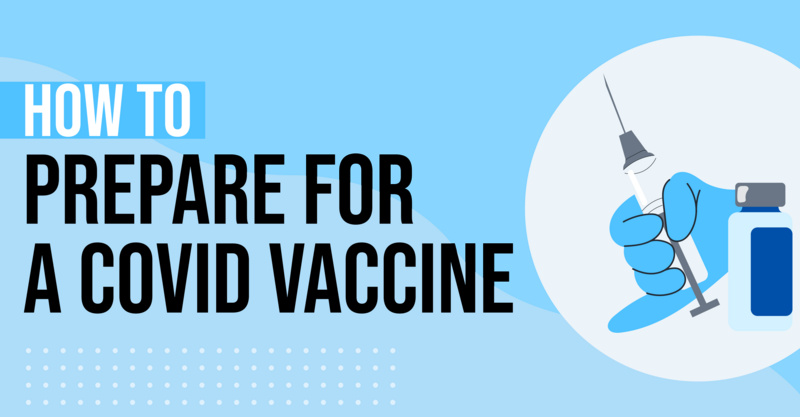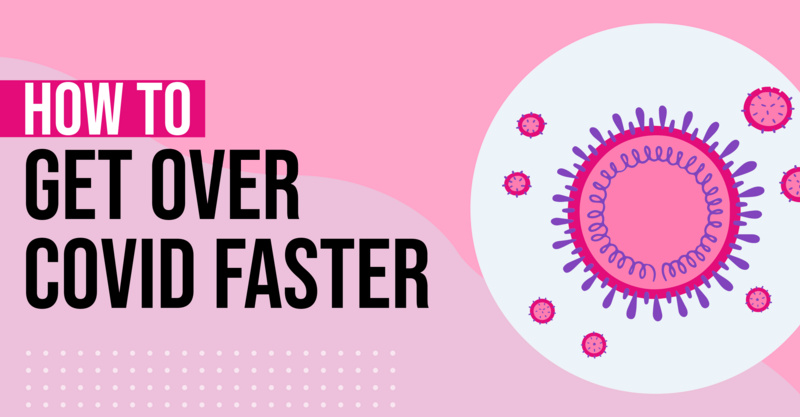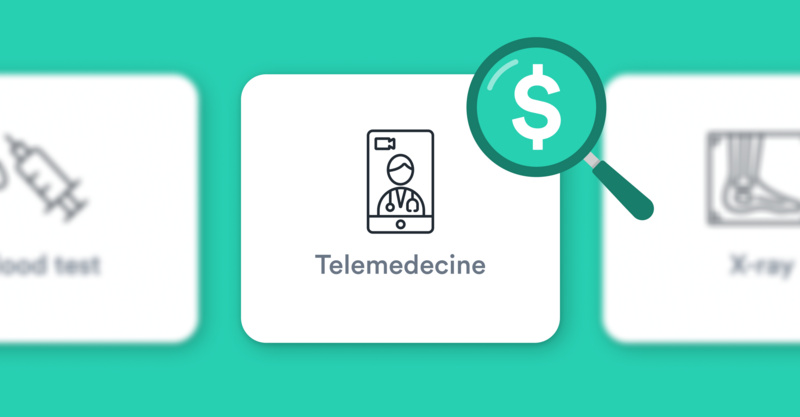Key Points
- The article provides an in-depth understanding of the two main types of COVID-19 tests: antibody and viral tests, with the former indicating past infection and the latter identifying current infection.
- The viral test further splits into two types: PCR (molecular) and rapid (antigen), each with different uses and turnaround times.
- The article highlights the importance of testing in protecting communities and individuals, especially those with health conditions that increase their risk.
- It also brings to light the risks associated with testing, such as false positives and negatives, and the potential for exposure to the virus during the testing process.
- The article lists six scenarios where one might require a COVID-19 test and concludes with a set of questions to ask your doctor about COVID testing and a glossary of terms.
What is a COVID-19 (or coronavirus) Test?
A COVID test can help you find out whether you have contracted coronavirus disease 2019 (COVID-19). There are currently two different types of COVID tests: an antibody test and a viral test. An antibody test may tell you if you’ve had COVID-19 in the past, while a viral test may tell you whether you are currently infected with COVID-19.[1] Getting a COVID test can bring you one step closer to seeking treatment if needed; you can protect others in your community by sheltering in place and practicing social distancing if you are infected.
Understanding COVID Testing
COVID testing can be viewed as a preventative measure in terms of protecting your family and other community members, or as a way to find out whether you need medical treatment—especially if you have a comorbid health condition that puts you at higher risk for severe COVID-19 illness. Your healthcare provider can determine whether you need an antibody or viral test and if you should be tested for COVID-19 based on your situation.
Different Types of COVID Testing
1. Viral Test
The COVID-19 viral test reveals whether you are currently infected with COVID-19. You may receive the viral test if you are exhibiting symptoms of COVID-19, or are asked to do so by your employer or healthcare provider. Viral tests are available as both PCR (molecular) and rapid (antigen) test varieties.
2. Antibody Test
The COVID-19 antibody test can determine whether you were previously infected with COVID-19 or if your body has created antibodies to defend itself from COVID-19. The antibody test can only detect antibodies if administered at least 12 days after you have been exposed to COVID-19.
PCR vs Rapid COVID Testing
Viral COVID tests are available as molecular and antigen tests. The molecular test, also known as a polymerase chain reaction (PCR) test, usually delivers results within a few days since most of these tests are sent to offsite labs for analysis. The average turnaround time for PCR test results is 48 hours, but in some instances may be significantly longer due to backlogs related to insufficient lab volume and capacity. Antigen tests are also known as rapid tests and have an average turnaround time of between 15 to 30 minutes.[9]
Both PCR and rapid COVID tests can be used to test people exhibiting symptoms of COVID-19, those who were close contacts to COVID-19, and those without COVID-19 symptoms who live or work in a high-risk setting (such as a nursing facility); or those individuals who are identified as part of outbreak detection and response. The rapid COVID test is also recommended for the screening of residents or healthcare workers at skilled nursing facilities along with a PCR confirmation, and for repeat screening for the early detection and prevention of outbreaks in congregate settings (such as schools, workplaces, and prisons).[9]
COVID testing is available for free under the Families First Coronavirus Response Act, which includes testing for those without health insurance.[10] To reduce the risk of facing extra costs related to COVID testing, ask your primary care doctor to recommend a free COVID test site, and confirm there are no charges or fees for the test that are not covered by your insurance plan. Additionally, avoid getting a COVID test at a hospital or free-standing emergency room, as these facilities may charge fees for COVID testing and related services.[11]
What to Expect From COVID Testing
Many healthcare providers and COVID testing sites require an appointment ahead of time to prevent large groups of people from showing up at once. During a COVID test, a healthcare worker uses a swab to collect a sample of saliva or fluids from inside your nose or throat. The procedure may cause mild discomfort, but lasts only a few seconds. Your samples are then sent to a lab to confirm the presence of COVID-19 or if you’re negative. The results are then shared with you by your healthcare provider or the lab.[8]
Risks of COVID Testing
COVID testing itself is associated with few to no risks. However, some issues may occur with testing like any other procedure.
1. False Results
False negatives and false positives may occur with COVID testing.[6, 7] False negatives are tests that report that you don’t have COVID-19 when you do. False positives are tests that report you have COVID-19 when you do not. Receiving a false negative may result in your illness progressing or the infection of others. A false positive may result in unnecessary quarantine or medical treatment.
2. Contracting COVID-19
Getting a COVID test may expose you to other people with COVID-19 who are getting tested because they have symptoms, or who are healthcare workers administering the test to infected individuals. Wearing a face covering and practicing social distancing may reduce your risk for contracting COVID-19 when you go to get tested.[8]
Top 6 Reasons You Need a COVID Test
1. Having COVID-19 Symptoms
If you’ve been experiencing one or more symptoms of COVID-19, a COVID test can rule out whether you have COVID-19 or are suffering from another health condition. Common symptoms of COVID-19 include fever, cough, fatigue, headache, shortness of breath, and others—many of which are the same as the flu.[2] If you have COVID-19 symptoms, taking a COVID test can alert you to whether you need medical treatment. Also, a positive will determine whether you need to stay home or shelter in place to avoid infecting others.
2. Exposure To An Infected Person
A COVID test can confirm whether you contracted COVID-19 after being exposed to an infected person. Your health provider may recommend you be tested for COVID-19 if you came within 6 feet of an infected person for at least 15 minutes.[1] You may also be asked to have a COVID test if you spent time in an environment in which you were exposed to many people outside of your household, did not practice social distancing, or wear cloth face coverings.
3. Work Requirement
Some employers require employees to be tested for COVID-19 before returning to work or starting a new position. Healthcare workers, first responders, and critical infrastructure workers are some populations required to receive a COVID-19 test.[3] Many of these workers are also required to wear a cloth face covering when social distancing is not possible during the workday, and to avoid crowds and indoor places where COVID-19 can easily spread.
4. Visiting a Nursing Home
People who work in nursing homes or who are visiting friends and relatives in nursing homes may be required to get a COVID test before entering the facility. Older adults—particularly those who live in nursing homes—are found to be more vulnerable to COVID-19 than the general population.[4] Older adults who live in nursing homes tend to have underlying medical conditions that put them at increased risk of infection and severe illness from COVID-19.
5. Traveling
People who travel to other states and countries may be required to take a COVID test before or after arriving at their destinations. This is to prevent the spread of COVID-19—especially if visitors are from “hotspot” regions with high rates of COVID-19 cases and hospitalizations. If you plan on traveling during the COVID-19 pandemic, you may want to confirm whether your destination has mandated COVID testing or quarantine for visitors.[5]
6. Attending Large Gatherings
Your healthcare provider may recommend getting a COVID test if you recently attended a large gathering of 10 or more people where universal mask-wearing and physical distancing were not practiced.[3]
Since COVID-19 is spread mainly from person to person, attending a large gathering may increase your risk of exposure to the virus.
Questions to Ask Your Doctor About COVID Testing
- How long will it take for COVID test results to come back?
- Should my family members also be tested for COVID-19?
- How often should I be tested for COVID-19?
- Do I need to get tested for COVID-19 again if I’ve already been tested?
- Have there been any reports of false results with the COVID test I am receiving?
- Should I have a COVID test even if I don’t have any symptoms?
- Do I need a COVID test even if I already had COVID-19?
- Where can I get a COVID test?
- Am I eligible to get tested for COVID-19?
- How much will it cost to get tested for COVID-19?
- What type of information will I be asked to provide when I get COVID testing?
A COVID Test may also be known as
- Coronavirus test
- Viral COVID test
- Antibody COVID test
- COVID-19 swab
- Molecular COVID test
- Serology COVID test
- Diagnostic COVID test
- Antigen COVID test
Frequently asked questions
What are the two main types of COVID-19 tests?
The two main types of COVID-19 tests are the antibody test, which indicates past infection, and the viral test, which identifies current infection.What are the two types of viral tests and how do they differ?
The two types of viral tests are PCR (molecular) and rapid (antigen). PCR tests are more accurate but take longer to process, while rapid tests provide results faster but may be less accurate.Why is COVID-19 testing important?
COVID-19 testing is crucial in protecting communities and individuals, particularly those with health conditions that put them at higher risk. It helps in identifying infected individuals so they can isolate and prevent the spread of the virus.What are the risks associated with COVID-19 testing?
The risks associated with COVID-19 testing include the possibility of false positives and negatives, and potential exposure to the virus during the testing process.When might I need a COVID-19 test?
You might need a COVID-19 test if you're exhibiting symptoms, have been exposed to an infected person, have work requirements, are visiting a nursing home, are traveling, or are attending large gatherings.What questions should I ask my doctor about COVID testing?
You should ask your doctor about the type of test you should take, its accuracy, the turnaround time for results, and what the results mean for your health and safety.What is a glossary of terms related to COVID testing?
A glossary of terms related to COVID testing is a list of definitions for terms commonly used in discussions about COVID testing, such as "antibody," "viral," "PCR," and "antigen."
Solv has strict sourcing guidelines and relies on peer-reviewed studies, academic research institutions, and medical associations. We avoid using tertiary references.



